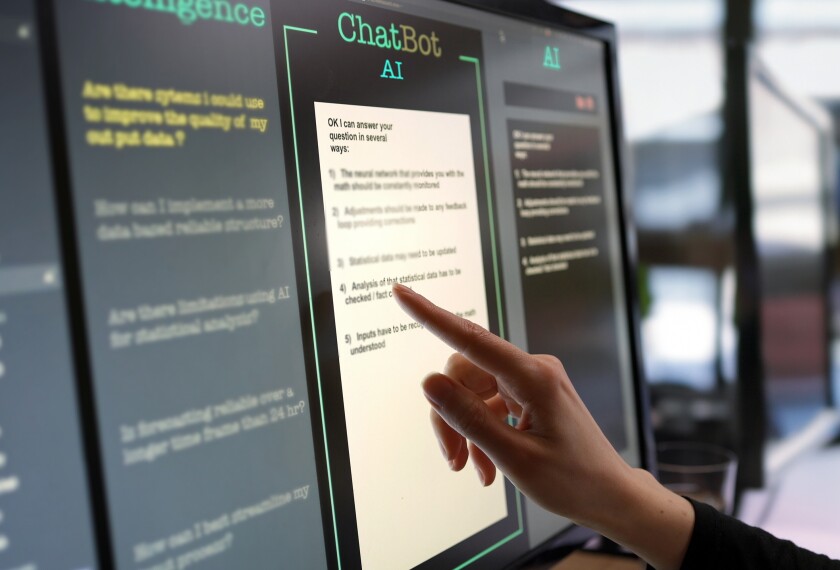Teens and tweens are often way ahead of their parents in understanding the latest technologies—and artificial intelligence is no different, according to a recent poll from Common Sense Media, a nonprofit that studies the impact of tech on children and youth.
More than half—58 percent—of students ages 12 to 18 have used ChatGPT, an AI-powered tool that can answer questions, write an essay on a Shakespearean play, or draft a legal memo that appears remarkably similar to what a human can produce, a Common Sense survey released May 10 found.
But just under a third—30 percent—of parents have used the tech. What’s more, only about 30 percent of parents had heard “a lot” about ChatGPT, compared with 54 percent of students.
Many parents seem to be out of the loop when it comes to their child’s use of ChatGPT. Fifty percent of students ages 12 to 18 say they have used ChatGPT for school, but only 26 percent of parents of kids in that age range say their children have used the tech for school.
Both parents and students are excited about the potential of AI in education. More than three-quarters of parents (77 percent) and more than nine in 10 students (92 percent) say they are interested in AI tools that might help them learn.
“These findings show that while parents and kids are generally optimistic about the potential of AI, they also see the potential for the extraordinary downsides,” said James P. Steyer, Common Sense’s founder and CEO, in a statement. “It is clear that parents and all of society have a lot of catching up to do and need reliable resources and clear rules to deal with the impact of AI on our society and our kids.”
Most parents and students concerned kids could become too dependent on AI
What’s more, 68 percent of parents and 85 percent of students believe that AI programs will have a positive impact on education. That’s higher than the percentage of teachers who were optimistic about AI in an EdWeek Research Center survey. Nearly half of educators who responded to that survey said AI would have a negative or very negative impact on teaching and learning in the next five years. Twenty-seven percent said AI’s impact would be positive or very positive.
Majorities of both parents and students are concerned that kids could become too dependent on AI. Roughly two thirds of both parents and students worry that students could rely too heavily on the tech for school assignments or use it to cheat.
And majorities of both parents and students say they want schools to put in place rules governing how AI is used in the classroom. For instance, 78 percent of parents and 72 percent of students support not allowing ChatGPT to be used during tests. And 89 percent of parents and 85 percent of students favor putting clear school guidelines in place around ChatGPT before it can be used for assignments.
Some school districts—including New York City— have banned ChatGPT, at least temporarily. But some experts worry that by discouraging students from using ChatGPT and other AI-powered technologies, schools will have a hard time teaching the increasingly important subject of AI literacy.
The Common Sense poll was conducted this spring by Impact Research, a polling organization, in March and April.






